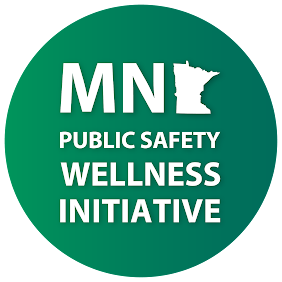Guest post by Lora Setter, LMCIT public safety program coordinator
I was surprised to learn that the practice of making New Year’s resolutions dates back 4,000 years to Babylonian times. Though the Babylonians celebrated the start of the new year in March, resolutions throughout the centuries appear to maintain a common theme of people wanting to be better. A current resolution for many people, especially coming out of the holiday season, is to exercise more and eat healthier. Health clubs and gyms see a spike in memberships in January.January not only starts a new year, but it’s also Mental Wellness Month. A time dedicated to focusing on our mental health. It’s impossible to argue the benefits of eating healthy and exercising, but paying attention to mental health is just as important. According to Forbes Health, “Overall, 48% of people say improving fitness is a top priority in 2024 while 36% cite improved mental health as a top resolution (respondents could select more than one). 55% say physical and mental health are of equal importance.” To strengthen the body, exercise needs to be a consistent practice or habit. It’s the same with mental health. Practicing daily mental health habits help to strengthen mental resiliency.
Some mental health habits to include into your daily routine are:
Check in with yourself often, asking the question – How am I feeling? Knowing how you’re feeling helps in being aware of how you’re thinking. How you’re feeling and thinking impact how you act. How you act affects how you feel and think. It’s all connected.
Know what you can control. Many things that frustrate us are out of our control. It’s hard to keep this at the forefront of our thinking because public safety is in the control business. When life gets out of control, public safety is called to bring order to chaos. For this reason, people working in public safety can lose sight of what they really have control over. With every situation, taking the time to ask yourself, “Is this something I can control?” will help to remind you that the only thing you have control over is yourself. How you react and show up is the only thing that is truly within your power.
Choose to be positive. Let’s face it, public safety is a tough business. You’re often meeting people in their worst moments and you’re continuously experiencing or hearing about crisis situations, tragedies and calls that are simply sad. Keeping items at the ready that can help you stay positive is important. It can be a favorite picture of a fun time, listening to music that uplifts you, looking at a funny meme, or something that consistently makes you smile or laugh. Anything that helps you focus on the positive.
Focus on purpose. Knowing your purpose is like having a superpower. Reminding yourself daily why you do what you do and staying purpose filled about what calls you to public safety work is paramount to mental and physical health. Research shows that people who have purpose live longer.
Find a feedback partner. Having a trusted confidant, someone you can share your innermost feelings and frustrations with, can help alleviate stress. Allow this person to hold the mirror up for you, too. Sometimes it’s hard to know how we’re showing up. Having a trusted friend, colleague, or peer support person provide a listening ear, guidance and feedback can help ensure that you’re bringing your best self to the work you do.
Breathe. To alleviate stress and negative thinking, take short deep breathing breaks. Even taking 2-3 minutes to focus on your breath can help to calm your nervous system. There are many apps with breathing exercises that prompt you to take a few moments to yourself throughout the day.
Take it a step further with mindfulness. Mindfulness is a meditation practice that focuses on being in the present; fully in the here and now, not ruminating about what has happened or worrying about what may happen. The Mayo Clinic offers three simple steps for practicing mindfulness:
- Pay attention. Take the time to experience your environment with all your senses — touch, sound, sight, smell, and taste. For example, when you eat a favorite food, take the time to smell, taste, and truly enjoy it.
- Live in the moment. Try to intentionally bring open, accepting, and discerning attention to everything you do. Find joy in simple pleasures.
- Accept yourself. Treat yourself the way you would treat a good friend.
Prioritizing sleep, exercise, and healthy food choices are daily habits that are paramount to staying mentally resilient. Protect your sleep and make it a priority. Coming to work fully rested helps to prepare you for the things you may see or do. When possible, take short walk breaks during your shift to help increase blood flow to your brain, which helps with decision making. The adage you are what you eat is very true when it comes to your brain. Keeping a healthy, resilient brain means keeping a healthy diet.
As we continue the tradition of making New Year’s resolutions, let’s resolve this year to stay as aware of our mental health as we do our physical health.



